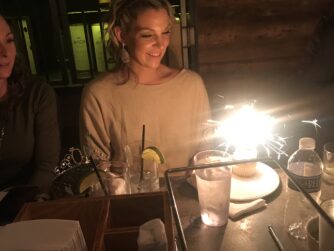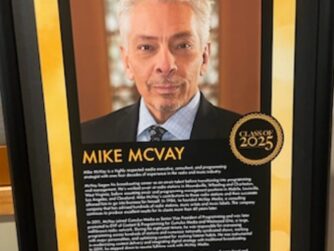Why This Narrative Is a Disservice to Moms Everywhere.
There’s a phrase I’ve heard more times than I can count throughout my motherhood journey, especially when my kids were younger and I looked visibly exhausted, overwhelmed, or unsure.
It goes something like:
“Oh, you think this is hard now? Just wait until they’re teenagers.”
Now, as a mom to two teenage daughters, I want to say this with love and clarity: we need to stop saying that. That narrative isn’t helping anyone. In fact, it’s doing real harm, both to the moms hearing it and to the larger culture of support and compassion we all need as parents.
Every stage has hard. And every parent deserves to be met where they are, with compassion, not comparison or condescension.
- Every Stage Has Its Own Hard
When I was a new mom, I didn’t judge myself. I wasn’t second-guessing every decision. I was in my twenties, and in many ways, I felt grounded and present.
I didn’t have social media yet, no MySpace, no Facebook, I just was not into those things, definitely no Instagram since it didn’t come along until 2010 (when my second daughter was born.) There was nothing to compare my experience to, and that made a huge difference. I didn’t overanalyze milestones or question if I was doing things “right.” Did she cry at night and only want to be held? Yes. But I thought that was just what babies did. I didn’t mind waking up throughout the night, I actually slowed down and found joy in those quiet 2:00 AM feedings.
I also had support. My mom and mother-in-law lived nearby. One of my best friends was her nanny. That early season of motherhood, while exhausting at times, felt simpler, less noisy, less judged, and less performative to me.
- Kids Have Different Temperaments
My two daughters are both teens, but they’re completely different people but yet pretty similar. One is more sensitive in a way, one more independent. One opens up freely and always talking, the other needs space to process. If there’s anything motherhood has taught me, it’s that temperament matters, a lot.
Some toddlers are defiant. Some are chill. Some teens rebel, others stay close. It’s not about the age, it’s about the individual child, their environment, and the relationship you’ve built with them. Both of my kids are fairly soft spoken outside of the home, until they feel comfortable. This is exactly how I was.
I know I’m extremely lucky both of my kids are very affectionate still. They’re both very polite out of the house, yes they both can give me attitude at home, one more so than the other. But they’re kids and that saying they hold their emotions in all day and let it out on the one they’re closest to, I think is true.
So when we say “just wait,” we’re projecting our own experience as universal, and that’s unfair.
- Moms Are in Different Seasons of Life
Let’s also talk about the mom’s side of things.
We’re all living different lives, in different circumstances. Some of us had kids at 22, others at 42. Some have stable support systems, others are navigating solo parenting, trauma, health challenges, or financial stress. Some are parenting while caregiving for aging parents or working full time or rebuilding from burnout.
Telling a struggling mom to “just wait” adds anxiety to an already full plate. Instead, we should be saying:
“You’re doing an amazing job. I remember that stage. I’m here if you need support.”
- Am I Busier Now as a Teen Mom? Yes.
Now that my kids are teens, am I busier than I was during the toddler years?
Absolutely.
The older they get, the more packed the calendar becomes, sports, clubs, after-school activities, study groups, social plans, college visits. I feel like an Uber driver, calendar coordinator, emotional sounding board, and life coach all rolled into one.
And do I worry more now?
Oh, hell yeah.
Parenting teens comes with a different kind of hard. They’re staying out later. They’re doing things I’m not part of. I have one daughter driving. She’s looking at colleges and becoming an adult in front of my eyes. The fear, the anxious thoughts, the “what ifs”, it’s a whole new level of motherhood unlocked. Emotional complexity, independence, social pressures, comparison culture, academic stress, and the constant balancing act of giving freedom while still parenting.
There’s a deeper vulnerability now. A deeper trust required. A deeper letting go.
It’s not “easier” or “harder.” It’s just different. And it’s very real.
- We Need to Stop Fear-Mongering Motherhood
There’s enough fear, guilt, and pressure in motherhood already. We don’t need to add more by treating future stages like ticking time bombs.
Teenagers aren’t something to dread.
They’re emotional, funny, opinionated, deeply intuitive beings trying to figure out who they are, and they still need us.
Parenting teens can be incredibly rewarding. I’ve had some of the most profound, hilarious, and heart opening conversations of my life with my daughters. But yes, there are eye rolls, slammed doors, and “You just don’t get it” “Stop talking, you’re so annoying moments” but there’s also connection, honesty, growth, and a beautiful shift in how they relate to the world.
Let’s normalize saying:
- “There are hard parts and beautiful parts at every age.”
- “What you’re going through now matters. You’re not crazy or weak for finding it hard.”
- “You won’t lose yourself in motherhood you’ll grow with it.”
- So What Should We Say Instead?
If you’re a mom who’s been through the teenage years, or currently in them like me, I encourage you to hold space for others. Instead of issuing a warning, offer wisdom and empathy.
Try:
- “I remember that stage it was exhausting. Want to grab a coffee or just vent?”
- “Every age has its own joys and challenges. You’re doing great.”
- “You’re not alone. It gets different, not worse.”
Motherhood isn’t a competition to see whose stage is the hardest. It’s a shared experience, a long and winding road with detours, milestones, breakdowns, and breathtaking views.
Let’s retire the phrase “just wait until they’re teenagers” and replace it with something more honest, helpful, and kind.
Because as a mom to two teen girls, I can promise you:
They don’t need to be feared. They need to be seen. And so do you.







